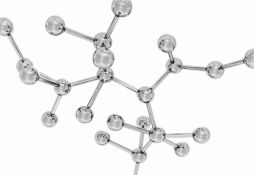Material Characterization Services
Material characterization services cover a broad range of tests and analyses. These tests can be any or all of:
- Mechanical Tests
- Performance Tests (tests focused on usage)
- Composition
- Compositional Changes Due to Processing or Aging
- Trace Analysis
- Surface Analysis
Material In-use
Mechanical and performance tests are usually required to determine how a material functions in-use. Sometimes this information is used to compare the performance of a product against a known historical product, but more often it is simply used to determine if a particular product/design reaches certain design performance criteria.
Material Composition
The composition of a material, on the other hand, may be required for reverse engineering, or it may be needed to determine contamination. Composition analysis may also be needed during development or as a quality control step. However, accurate determination of composition always depends on the requirements of the client.
Is 1% sufficient, or do you need to know “everything” in the product? Often the former is more relevant since these levels will be the primary performance measures, but in some cases a complete deformulation will be required. CPG is expert at selecting the most relevant tests for your application and can guide, where necessary, what level of accuracy you need for your specific application.
From Broad Determination to Trace Components
We can also help with broad determination using our suite of spectroscopic tools and conventional analytical chemistry approaches, and in the more demanding cases we can examine trace components using more sensitive techniques such as HPLC and GC/MS. We can also leverage our extensive network of outsourced labs for more specialized tests such as ICP, ESCA, Auger, TOF-SIMS. We will also determine the molecular weight of your materials using GPC or intrinsic viscosity.
Surface Analysis
An important aspect of material characterization is surface contamination and residual manufacturing materials. As lead authors on the currently-being-developed ASTM standards, we can provide state of the art consultation on surface cleanliness, analytical tools and clean-line validation.
